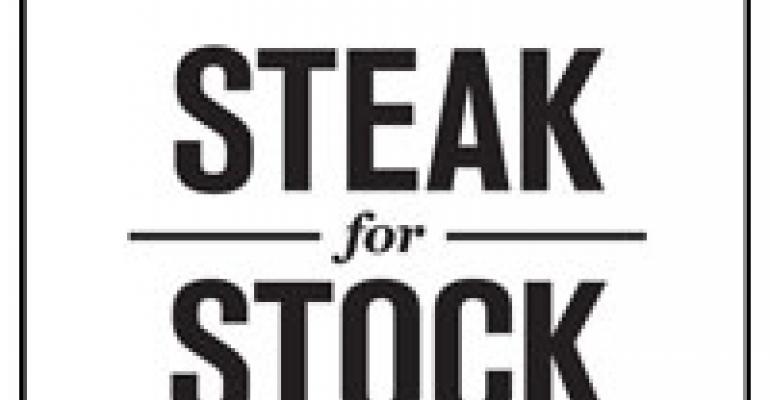
Sure, you could become irate about the multimillion-dollar bonuses being paid out to Wall Street bankers. But why not figure out how to help them spend part of their windfall at your place? That’s what New York City steakhouse Smith & Wollensky is doing, making it easy for its banker-heavy clientele to swap bonuses paid in stock for meals at its flagship location in midtown Manhattan. The publicity generated alone makes this no-cash-required arrangement worth the effort. Could a similar barter deal work at your place?
Those who don’t get an annual seven-figure bonus have little sympathy for those who do, especially since the recipients seem to be the same people who created the recent economic meltdown in the first place. But Smith & Wollensky isn’t shy about showing them some love.
The problem the bankers have at the moment is that public outrage at the size of their annual bonuses has caused some big banks to pay those bonuses in company stock, instead of the usual cash. You can’t spend shares of stock like you can cash—but now Wall Street bankers can at Smith & Wollensky, under its Steak For Stock program.
The restaurant took out a full-page ad in the New York Times last week to announce the promotion. Part of it read, “Starting immediately, Smith & Wollensky NYC will swap all NYSE and NASDAQ stock certificates (priced at the close of business) for our USDA Prime, dry aged steaks at both lunch and dinner.”
But not “all” stocks. Just those awarded to the big bank honchos who make up a large part of the restaurant’s customer base. “Bring us your CIT, your GS, your MS, your C,” read the ad. “We’ll gladly exchange them for sirloin, porterhouse and ribeye.” CIT is the stock symbol for CIT Group, GS is Goldman Sachs, MS stands for Morgan Stanley and C is Citigroup.
This program seems like a smart move, because Smith & Wollensky has been a prime dining spot for high profile Wall Street types for ages. But a lengthy disclaimer unearthed by web site Grubstreet.com reveals that the actual mechanics will be less patron-friendly than the ad copy seems to promise. Here’s what the attorney for Smith & Wollensky’s owner, Fourth Wall, had to say.
“In order to accept this offer, the registered owner of the stock personally must be present and must surrender to Fourth Wall the original stock certificate, plus a separate stock power with a medallion signature guarantee affixed. The stock must be of a public company traded on a national securities exchange with a readily determinable market value, freely salable by Fourth Wall and free from any transfer or other restrictions.
“Market value will be determined by Fourth Wall in its sole determination based on current market quotations, which determination will be binding. The value of the stock certificate (valued at the prior day’s close) will be credited to their bill. No credit will be provided if the value of the stock exceeds the amount spent at the restaurant. Fourth Wall is not acting as a broker or dealer and is acquiring the stock for its own account and not as part of its regular business.”
Whoa! It would be easier for the bankers to whip out their platinum American Express card and charge their meal instead of going through all this rigmarole. Especially since physical stock certificates are almost a thing of the past and, when they are issued, cover an entire trading lot, not a small slice of the overall amount.
So if you work at Goldman Sachs and got, say a $2 million bonus, you can’t go down to payroll and order them to cut you a stock certificate that will cover lunch at Smith & Wollensky. It just doesn’t work that way. And it’s true that you can get a separate stock power with a medallion signature guarantee affixed from your broker. But you’d better be prepared to wait for it if you want one.
So it’s unlikely there will be much spur-of-the-moment business from bankers looking to cash in a microscopic percentage of their recent bonuses. Which makes this promotion even better from Smith & Wollensky’s point of view. The restaurant earned a boatload of publicity, both local and national, yet will probably not have to implement its offer very often, if at all. And the program energizes its customer base, gets them talking about the restaurant and lets them know that Smith & Wollensky is on their side, no matter what the rest of the world says.
It’s a genius marketing move, all for the cost of one New York Times ad. Let’s hope other restaurants figure out a way to implement this style of “ barter a meal” promotion.





